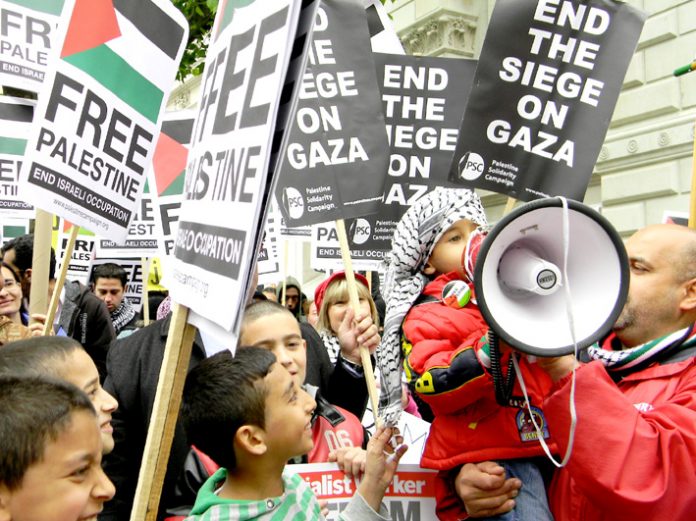A new flotilla to break the siege on Gaza is being prepared in Lebanon.
It includes an all-woman vessel, named the Mariam, organised by Samar Al-Haj and Yasser Qashlaq, who denied Israeli allegations that the new fleet had links with Hezbollah.
A second Lebanese boat, named after murdered Palestinian cartoonist Naji Al-Ali, was sponsored by the groups Journalists without Borders and Free Palestine, and will carry 50 journalists and 25 European volunteers, including members of the European parliament.
Israel Defence Minister Ehud Barak has warned the Lebanese government that it would be held responsible for any ‘violent and dangerous confrontations’ at sea, with Israeli officials describing the latest fleet as ‘provocative’ and a risk to regional security.
Meanwhile, Turkish Prime Minister Recep Erdogan said on Friday that his country would continue to deal with Israel’s 31 May deadly attack on the Gaza-bound Freedom Flotilla convoy and would never stay passive towards what happened.
The official Anatolia news agency quoted Erdogan as saying that some people expected Turkey to remain silent and forget Israel’s piracy, but this would not happen.
Speaking during a Justice and Development Party conference in Ankara, Erdogan said: ‘There are groups expecting Turkey to stay silent and take in Israel’s pirate conduct in the Mediterranean Sea and its political terrorism.
‘We did not sit silent faced with its pirate behaviour and wrongdoings and we do not intend on remaining silent.
‘We shall look for solutions within the international law.’
Erdogan said that Turkey’s agreement to enrich uranium for Iran has nothing to do with Israel, the international flotilla or its relations with the US.
‘We have reached an agreement with Tehran which meets the American president’s conditions under the patronage of Mr Lula da Silva, president of Brazil.’
He added that he told Obama that should Tehran fail to meet the agreement’s conditions it will lose Turkey and Brazil’s support.
Erdogan insisted: ‘But Iran has fulfilled its promises and sent them to the IAEA. Unfortunately, the IAEA responded to them only on the morning of the UN’s sanctions resolution.’
